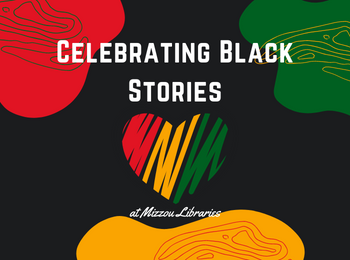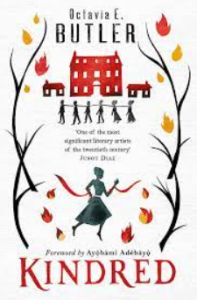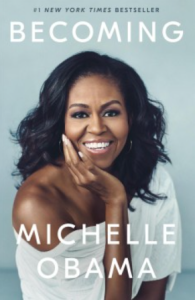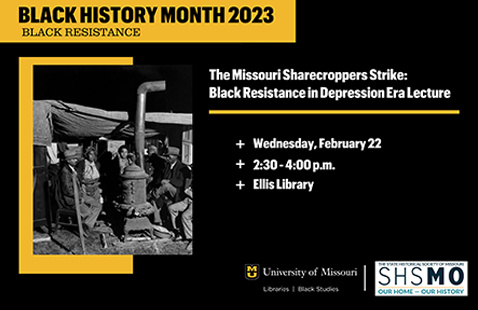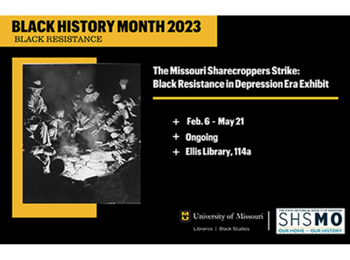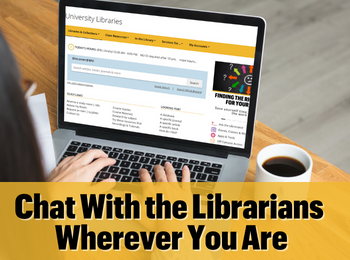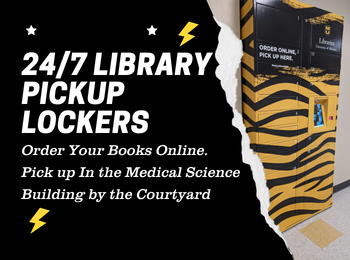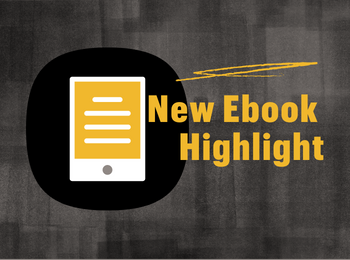This month we are appreciating all the wonderful works by Black creators showcasing Black stories.
We asked our Mizzou Librarians what stories they’d recommend and we got a lot. Below are a few of what was recommended and available at Mizzou Libraries.
You can view the full list here.
The Broken Earth Triology by N.K. Jemisin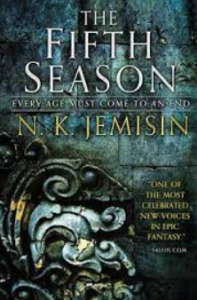
Three terrible things happen in a single day. Essun, a woman living an ordinary life in a small town, comes home to find that her husband has brutally murdered their son and kidnapped their daughter. Meanwhile, mighty Sanze — the world-spanning empire whose innovations have been civilization’s bedrock for a thousand years — collapses as most of its citizens are murdered to serve a madman’s vengeance. And worst of all, across the heart of the vast continent known as the Stillness, a great red rift has been torn into the heart of the earth, spewing ash enough to darken the sky for years. Or centuries.
Now Essun must pursue the wreckage of her family through a deadly, dying land. Without sunlight, clean water, or arable land, and with limited stockpiles of supplies, there will be war all across the Stillness: a battle royale of nations not for power or territory, but simply for the basic resources necessary to get through the long dark night. Essun does not care if the world falls apart around her. She’ll break it herself, if she must, to save her daughter.
The visionary time-travel classic whose Black female hero is pulled through time to face the horrors of American slavery and explores the impacts of racism, sexism, and white supremacy then and now.
“I lost an arm on my last trip home. My left arm.”
Dana’s torment begins when she suddenly vanishes on her 26th birthday from California, 1976, and is dragged through time to antebellum Maryland to rescue a boy named Rufus, heir to a slaveowner’s plantation. She soon realizes the purpose of her summons to the past: protect Rufus to ensure his assault of her Black ancestor so that she may one day be born. As she endures the traumas of slavery and the soul-crushing normalization of savagery, Dana fights to keep her autonomy and return to the present.
Hidden Colors Series directed by Tariq Nasheed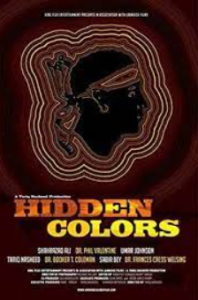
This is a series of 5 documentaries that discusses some of the reasons the contributions of African and aboriginal people have been left out of the pages of history. Traveling around the country, the film features scholars, historians, and social commentators who uncovered such amazing facts about things such as: The original image of Christ; The true story about the Moors; The original people of Asia; The great west African empires; The presence of Africans in America before Columbus; The real reason slavery was ended and much more.
Illustrated Black History : Honoring the Iconic and the Unseen by George McCalman with April Reynolds.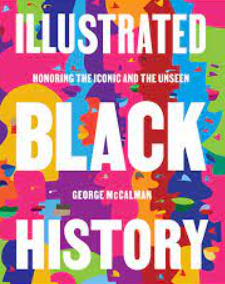
A gorgeous collection of 145 original portraits that celebrates Black pioneers–famous and little-known–in politics, science, literature, music, and more–with biographical reflections, all created and curated by an award-winning graphic designer. Illustrated Black History is a breathtaking collection of original portraits depicting black heroes–both famous and unsung–who made their mark on activism, science, politics, business, medicine, technology, food, arts, entertainment, and more. Each entry includes a lush drawing or painting by artist George McCalman, along with an insightful essay summarizing the person’s life story.
Black Men in White Coats : 100 Rules for Success! by Dale Okorodudu, MD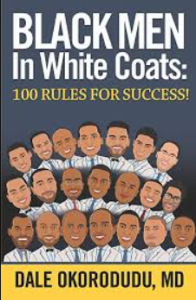
What does it take to overcome adversity and achieve success against the odds? Best-selling author and award-winning physician, Dale Okorodudu MD, answers this question in his book, Black Men In White Coats: 100 Rules for Success. Dr. Dale shares experiences and lessons learned from the first 20 guests on his podcast, Black Men In White Coats. From battling depression to surviving gang infested neighborhoods, these doctors have seen it all. In this book, Dr. Dale outlines 100 concrete rules for success based on stories from these doctor’s lives. Fun fact: Dr. Dale Okorodudu is a MU Medical School alum.
Hunger: A Memoir of (my) Body by Roxane Gay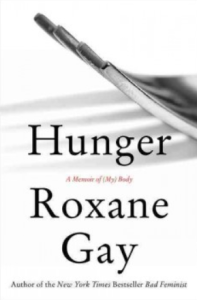
Roxane Gay addresses the experience of living in a body that she calls ‘wildly undisciplined.’ She casts an insightful and critical eye over her childhood, teens, and twenties — including the devastating act of violence that was a turning point at age 12 — and brings readers into the present and the realities, pains, and joys of her daily life. With candor, vulnerability, and authority, Roxane explores what it means to be overweight in a time when the bigger you are, the less you are seen.
In a life filled with meaning and accomplishment, Michelle Obama has emerged as one of the most iconic and compelling women of our era. As First Lady of the United States of America, she helped create the most welcoming and inclusive White House in history. With unerring honesty and lively wit, she describes her triumphs and her disappointments, both public and private. A deeply personal reckoning of a woman of soul and substance who has steadily defied expectations.
